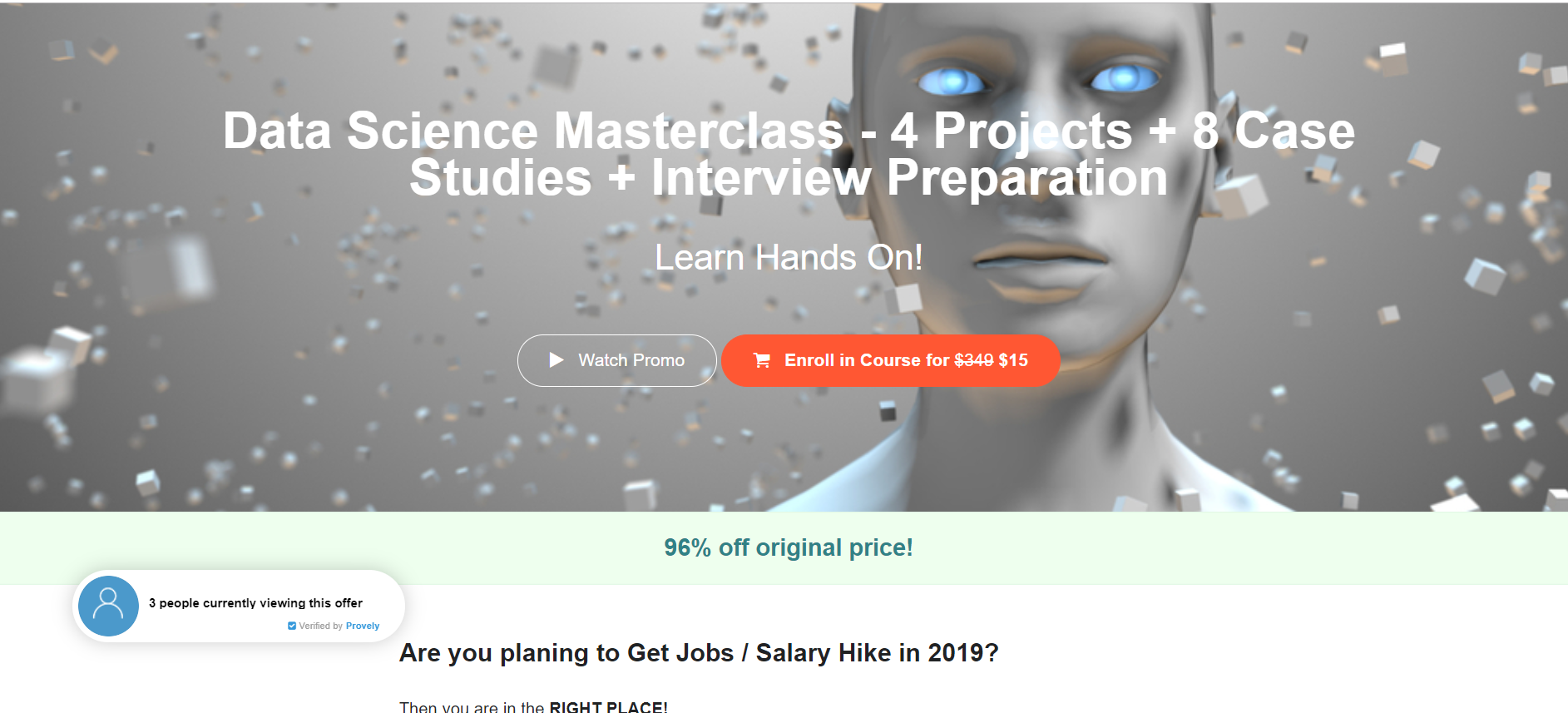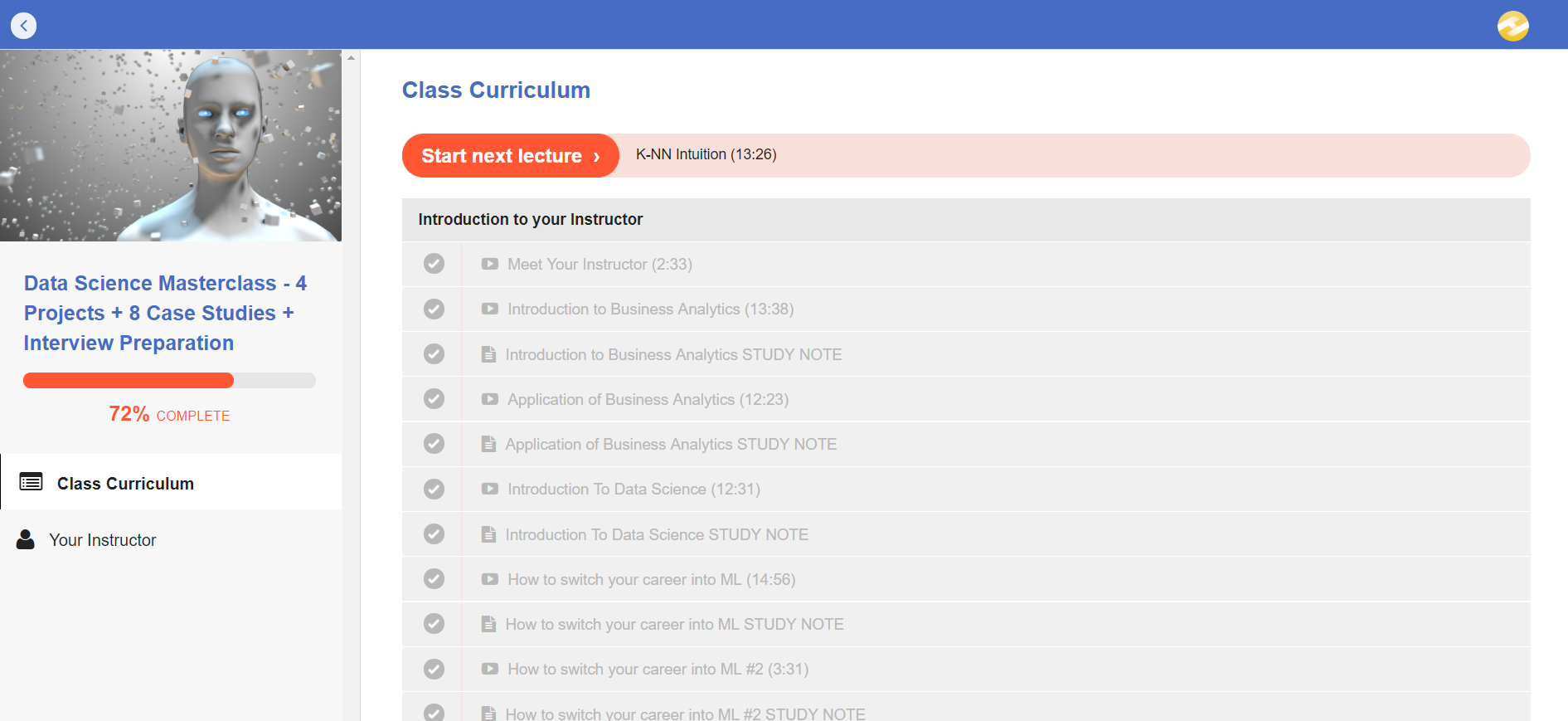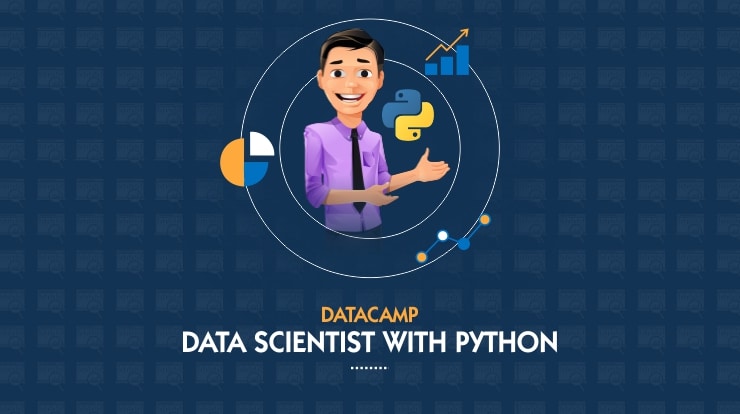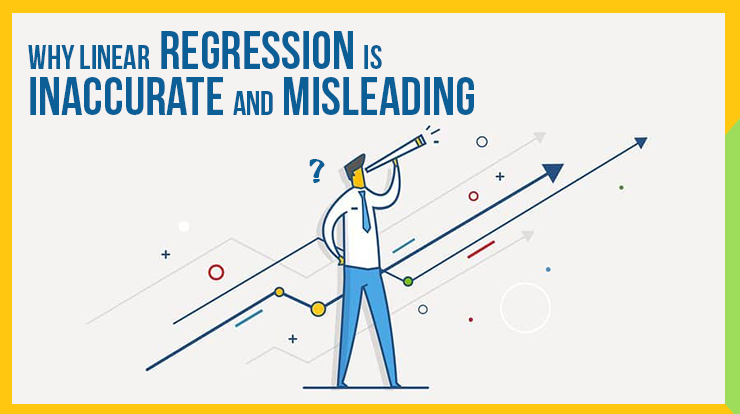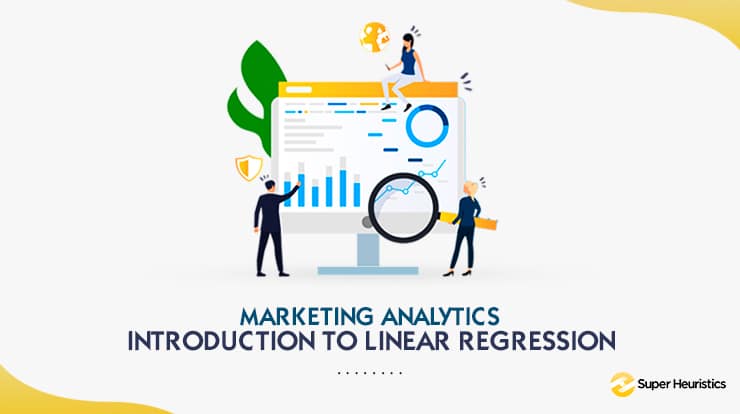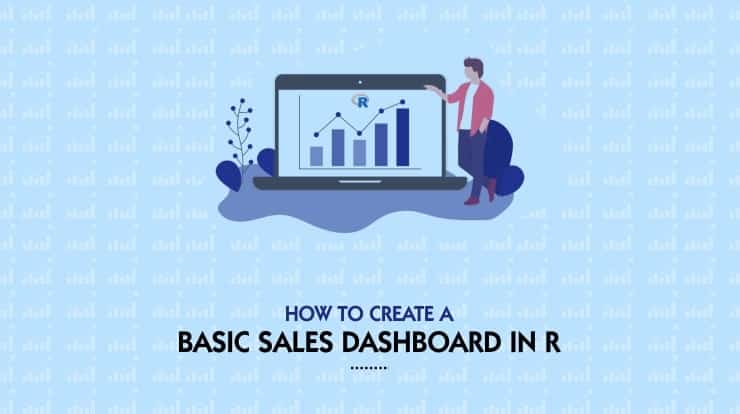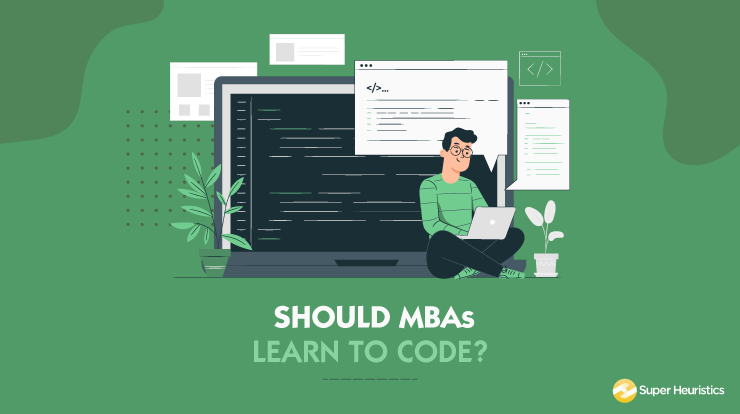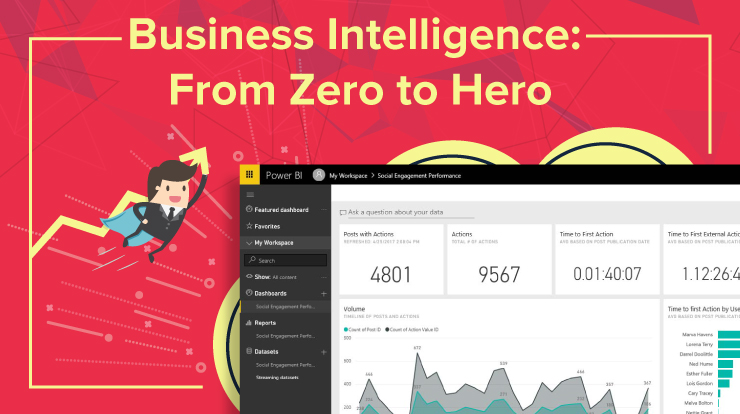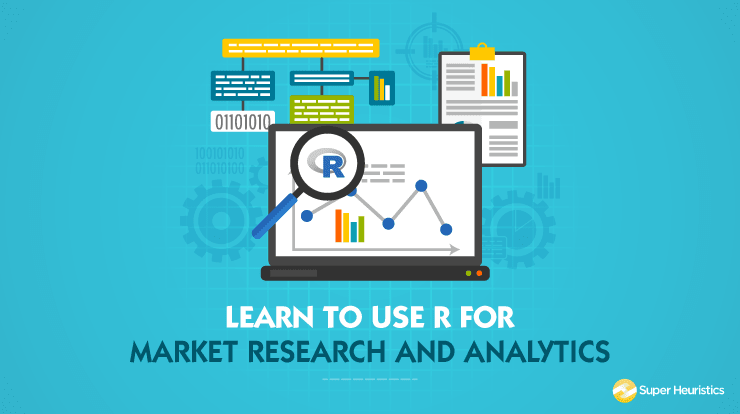
Do you want to make a career in Marketing or Analytics? Then there’s a strong reason why you need to learn to use R.
I am sure that in your MBA experience till now you have felt that how important it can be to learn to use R language. Not just for Marketers, but for Finance, HR and Operations enthusiasts as well.
But you haven’t really learned how to use R. Have you?
Some of you might be wondering how hard is it to learn R, how long does it take to learn R. Some might even think why should I learn R at all?
I can’t emphasize enough about the strong relation between statistics, marketing and analytics.
That’s what is happening in the industry out there. There’s so much convergence between these three fields that there’s all the more reason for you to learn to use R right now when you are in your B-school.
Heck. I would’ve done much better in my first-year summer internship had I learned R back then.
Because, that’s what I did during my internship. I was so inspired with all the great work that the company was doing in analytics!
Course: This Data Science with R course for me is one of the best R courses that my friends and I have done. I created really detailed notes on R through this course. You'll read about those notes and my exact steps of learning R in the article below.
You can checkout some demo videos from the course as well.
In this article, I will share with you how I successfully learned R (in lesser time that you think it takes) using this perfect Data Science with R course and what are the things that you should do to learn to use R.
Let’s learn how to learn R!
Why should I Learn R?
You could be a Marketing enthusiast or a Finance, HR or Operations person. And if there’s one thing that I can say with utmost confidence right now is that all of you should learn to use R.
For marketer, R for Market Research and Analytics is the ultimate tool to use.
But, let’s talk about the smaller things first. Learning R from that Data Science with R course gave me some really quick wins in college.
I took a pretty serious course on Predictive Analytics. While it was really a good course, all of us had a pretty hard time completing any of the group assignments.
Guess why?
Because for some strange reason you were not allowed to take laptops in a Predictive Analytics class! (such irony).
But then, here came the greatest benefit of learning R from an online course outside of the B-school curriculum.
I used all those well explained case studies in that Data Science with R course to create detailed and impeccable assignments out of it for my group.
But then here’s really why you should learn R to win in the longer run.
There will be a HUGE number of internship and placements opportunities coming to your campus that will be purely based on Analytics. Its crazy how I saw those numbers grow in my B-school from the last year till my year of placements.
These Analytics and Market Research jobs pay the highest. And that’s not changing anytime soon. Not in the next 5 years. Flipkart offered the highest (by a long way!) package in my year of placements. And all of that just for Analytics.
Finance guys need to learn R equally so much. The only reason for that being a great career progression that has no boundaries!
Financial Time Series Analysis with R is the hottest finance course in the second year at most of the B-schools.
HR people have said it enough already about how HR analytics is the single-most important development that is transforming the way people hire and manage talent. And you need to join that bandwagon with all those skills before hand!
And I am purposely not mentioning anything for those who aspire to be Consultants because all of you eventually need to master at least one of the domains from Finance, Marketing, Operations or HR.
So the reasons are simple. Learning to use R right now while you are in MBA will put you on the map. It will give you a pretty evident edge over all the other Marketing, Finance and HR people.
I am not even kidding about how industry people lap up to it. And to anyone who has exceptional skills in programming languages like R and SQL.
Here’s a something you should see. I was having a conversation with the Chief Technology Officer of my previous employer, telling him about the recent success with this blog of mine.
This is what he replied.

Yes, Machine Learning (which is exactly what the course that I took is about) does indeed make a powerful combination with Marketing.
I did reply telling him all the good things I was beginning to do in Machine Learning using R.
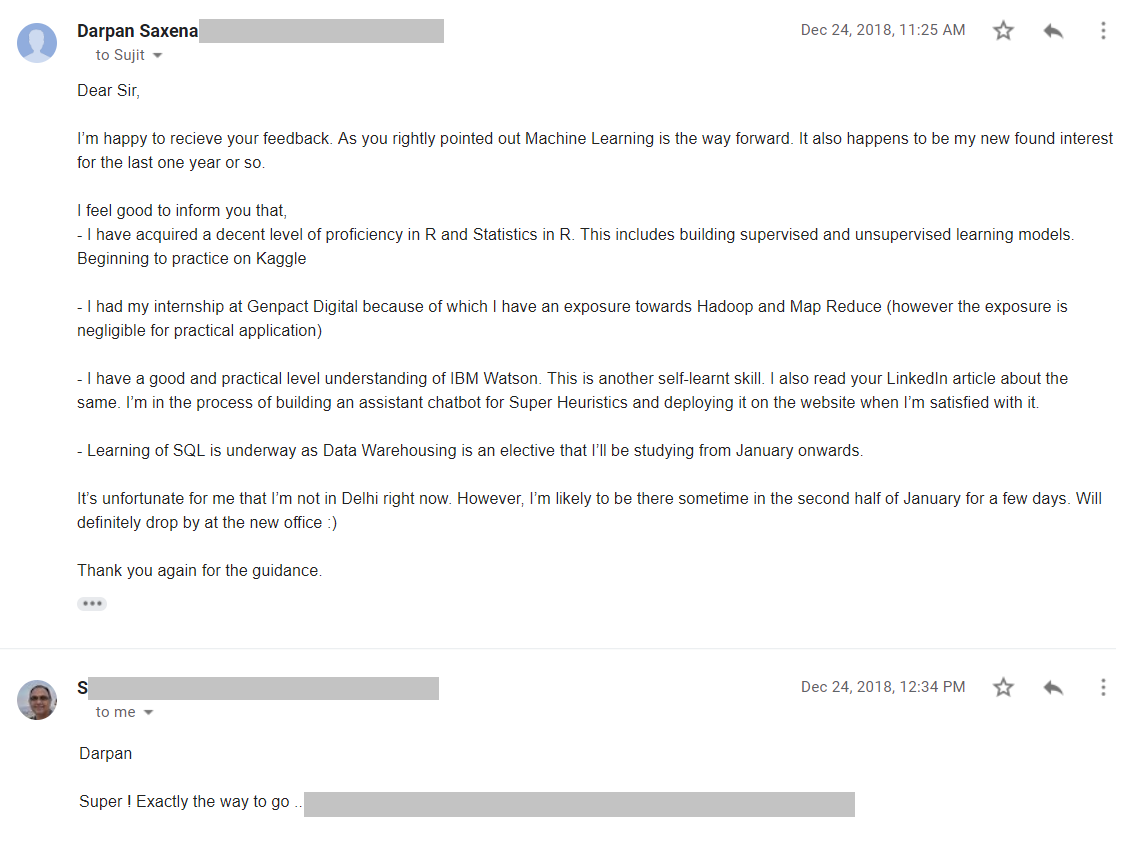
This should give you enough idea why we are talking about why you should learn to use R.
Here’s how I learned R fast
As I told you, I was super motivated to learn R. Sadly, there wasn’t even one course in our B-school in the first year which taught us that.
In fact, even if they did teach R, it would have been pointless.
Here’s the thing I believe in strongly - never expect to understand a coding based subject in an MBA classroom.
I took technical subjects of Predictive Analytics and Data Warehousing with SQL all through my second year and I can say that with enough collective experience of my class and friends at other B-schools.
They don't teach technical, or as some say Analytics subjects, well in MBA programs.
I always moved to some online course to learn whatever programming and digital marketing that I know.
There are two reasons why I never depend on classroom courses for things like Analytics or something equally technical.
1. You need to learn these things at your own pace. There is no way you can learn it completely at the pace of the class.
2. The classroom course I have taken do not teach hands-on coding. Creating and running a code right there. They don’t do it.
The saddest part is most MBA students don’t even care about learning R or any other technical language because they think data analysis and coding is not there job.
Trust me, come placements and your work life, it’ll be one of those jobs you wish you had prepared for.
So, now I will tell you about how I picked a great R course (undoubtedly the best one that I found) and how I made the best use of it.
1. I Picked a Great Course
It so happens that you often chance upon certain great things and you thank you stars for that. This was the case for me with this Data Science with R course by Up Degree. And I discovered that they offer a ton of other courses in Data Science.
First things first, I never take an online course for its certificate. I have seen enough people flash their course certificates on LinkedIn but let me tell you, that piece of paper doesn’t matter.
Do the courses for the knowledge it gives.
This Data Science with R course that I took is taught by Mr. Rajib Layek, who is currently a Senior Business Analyst at Amazon. He is an MBA in Finance from IIT Kharagpur.
Here’s the thing about this course. This course is just for $15. It covers the entire length and breadth of R programming and Machine Learning like it's nobody’s business!
I was bowled over by the comprehensiveness of this course on R. You can take a look at the contents on that page.
The reason why I did this course and I will choose it over every other course on R I have seen till now is because:
It has a native Indian instructor. People should believe it that this makes a lot of difference in your learning.
The instructor is an MBA and talks exactly about what you and I should know as MBAs aspiring to be Data Scientists.
Comprehensive course at a low price. Seriously, to cover the kind of ground that this course does, I would have to buy at least 3-4 different courses on other learning platforms.
Here is my dashboard and it is exactly how yours will look like.
But just buying a course and letting it be isn’t going to do anything for you. You have got to watch it. Here’s what I did beyond just watching the course.
2. What all did I learn in that course?
With this course I did, even before purchasing it, I was bowled over by the depth they offered in just $15.
Here is the entire list of contents in this Data Science with R course.
Introduction
Statistics
Business Application
Supervised and Unsupervised Learning
Capstone Projects and Deployment
This is the kind of depth that I found in this course. This was way more than what was covered in my Predictive Analytics class in my MBA and even more than covered by other courses out there.
This wasn't the first course on R that I have taken. My desperation to R made me try out 3 other paid courses before this one. They were courses on the most celebrated of the websites and learning portals.
And guess what? I never completed even 50% of all those other courses.
The reason is that they weren't engaging enough. They didn't give me enough hands on learning.
The bigger problem with other courses is that they split up the entire learning of R across many courses - Basic - Intermediate - Advanced.
Have you also seen such courses which break it up like that?
The problem with such courses is that even if you complete one entire course (which is long), you still don't know anything substantial in R. You can't really apply anything on a project.
3. I made detailed Notes
I have been a victim of buying online courses in a jiffy and then leaving them half way. Not just that, I am dumb enough to not remember a single thing from an online course even when I watched the entire thing.
But I did not repeat that mistake this time. Because this time I was really eager to learn to use R for market research and analytics.
So here’s what I did.
I watched all the videos in 1.25x or 1.5x of the speed. Watched one 10-15 minute video in one go. And then I created detailed notes on that video.
I repeated this for all the videos that I watched and voila! I made for myself a great compendium on R language that I can always refer back to.

50 pages of notes that I created after watching that course
The best part about this course was that it covers the basics of Statistics (that I learned in first year of MBA). I was even more eager to make notes on Statistics.
Here is a sneak peak.
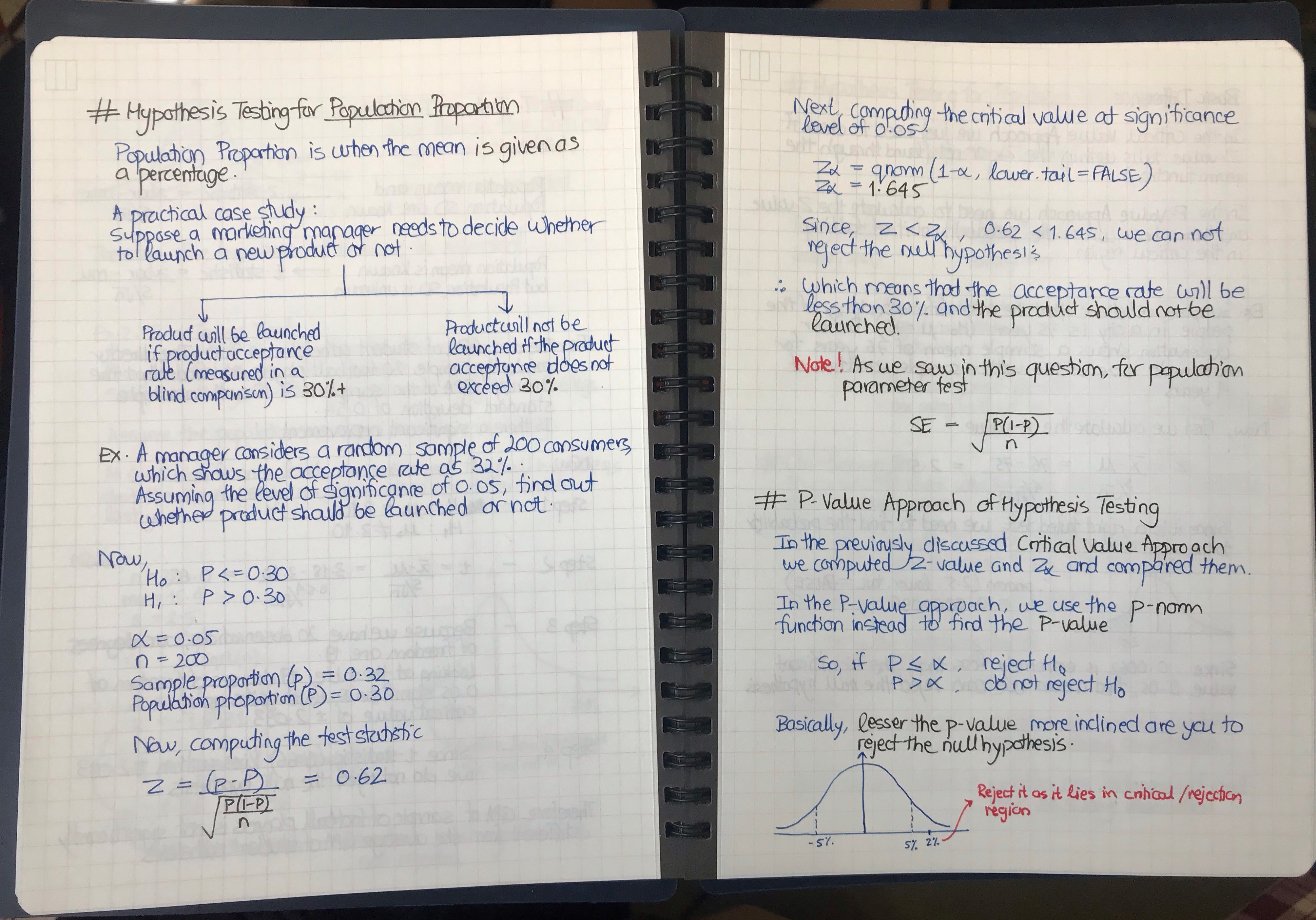
Statistics notes that I created from that course
These are over 50 pages of notes in which I have covered Statistics and Machine Learning, all learned from that course.
These notes in itself won't mean anything if you haven't learned R yourself.
4. Actually programmed in R
This is the third and the most important step, obviously. You have got to code to learn how to code.
In this course, Rajib teaches on an open-source R platform.
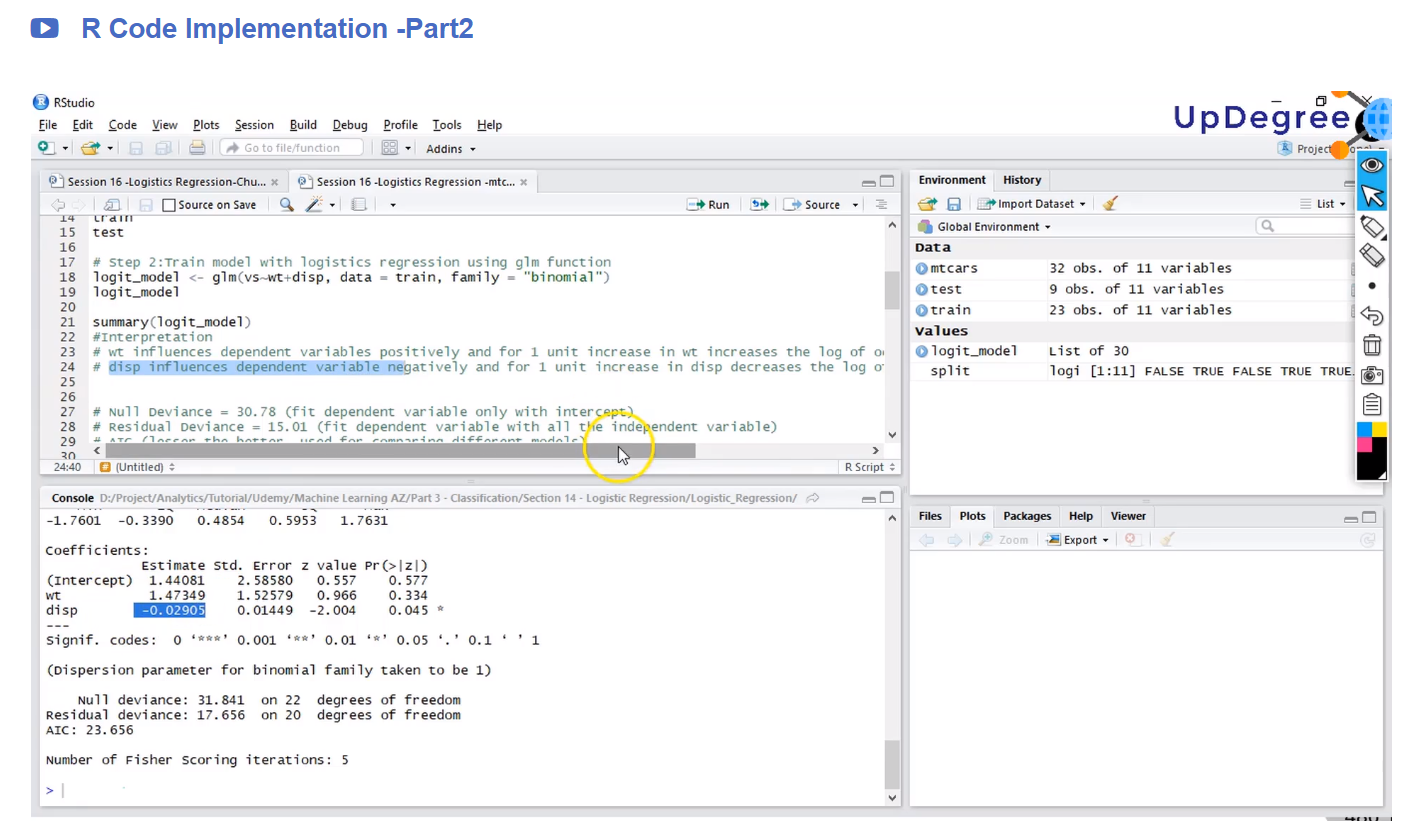
And therefore, you can download the exactly same platform and code along with him. He explains it in his introductory videos, step-by-step, about how to download that open source R platform.
While you might be thrilled right now about learning R from this course, a lot of you would still have certain questions about R and whether you will be able to do it or not.
Let me address a few of those questions which I always hear around me.
How hard is it to Learn R?
R is easy to understand. If you have picked up the correct way of learning R, you will sail through it. In fact you will be eager to come back to it every day and learn more.
Learning R well requires a good understanding of Statistics. Therefore, it is important to pick a learning method which will take you through Statistics, help you in clearing all those basics, and then will teach you to learn to use R.
The course which I learned from has this as its strongest point. It has a dedicated section to Statistics and teaches it from basics.
In the hindsight I can say, it was a good choice to learn R and that too from this course.
How long does it take to learn R?
It can take you anything between 20 - 60 days to learn R for Market Research and Analytics completely. This Data Science with R course that I learned from has a running length of around 29 hours.
I don’t recommend you to spend more than 40 minutes per day. That’s because you need to absorb the learning as well.
And with R, it is better to take it slow.
But the best part about this course is that you can learn different things whenever you want.
I mentioned about how I completely my Predictive Analytics assignments using this course. I went to an advanced topic, learned that and created an assignment on that.
That’s the beauty of this course that I chose. It was easy to learn from anywhere because this is course takes you from beginners to advanced.
Conclusion - Learn to use R!
Here’s my verdict on this. R is a crucial language for you and it would strongly recommend you to learn R for market research, analytics and Machine Learning right when you are in your B-school.
I mentioned about how I learned R using the Data Science with R course and how I created detailed notes which helped me truly understand the topics.
I hope you have a successful journey while learning R. The important part is that you must start, today.
That course is currently on discount and you can check it out here.

